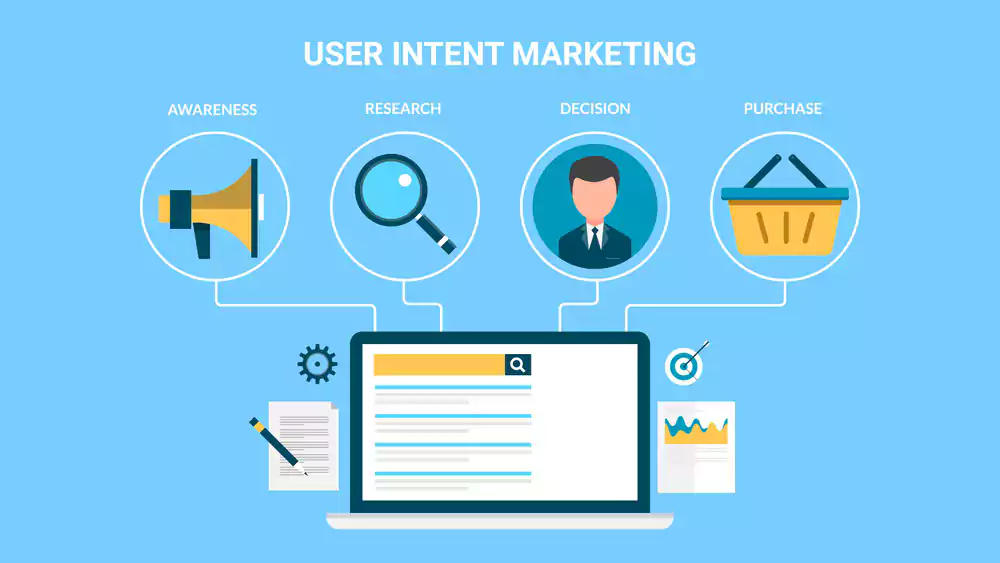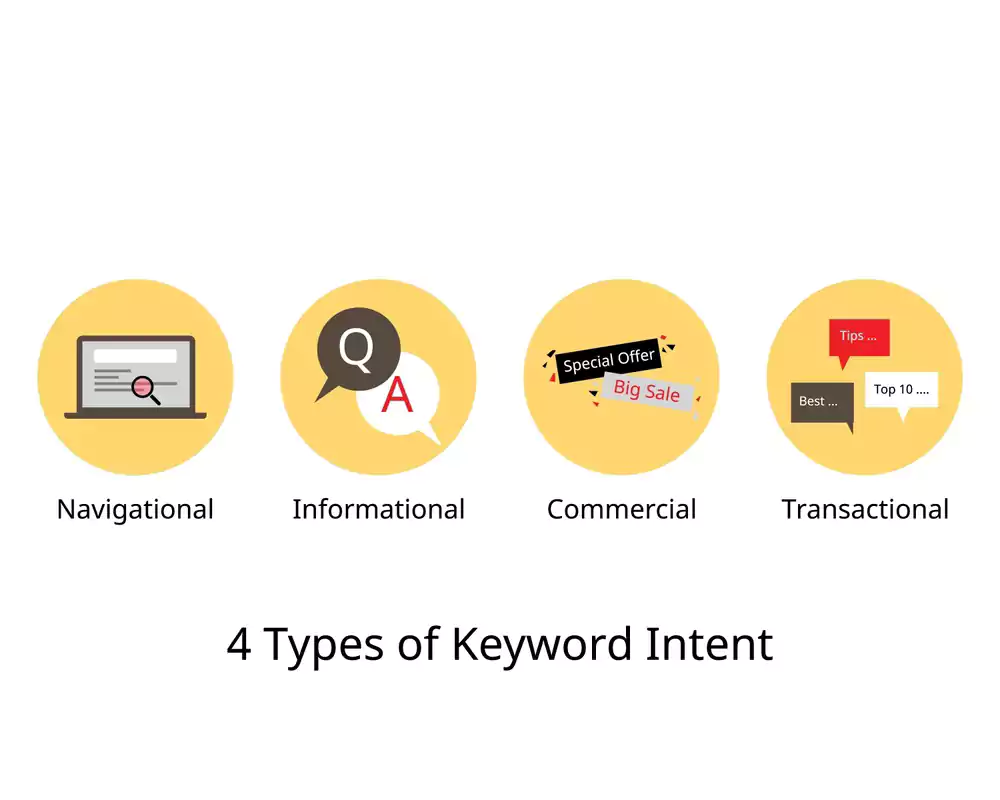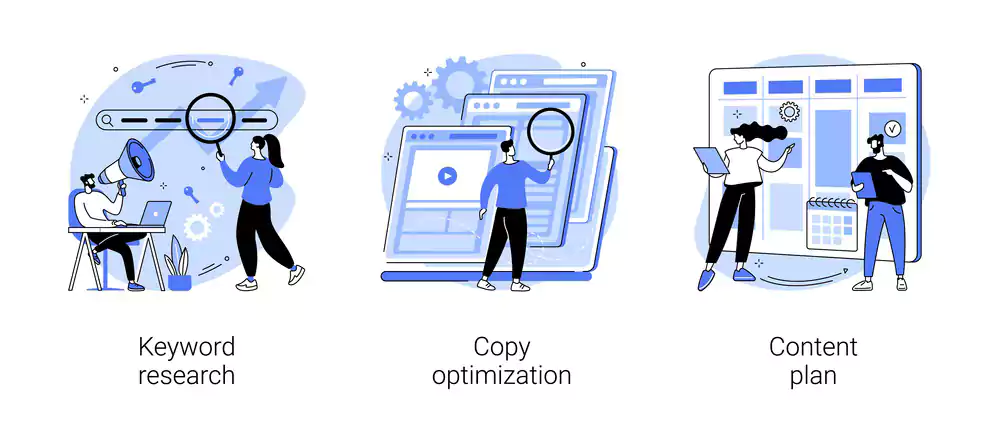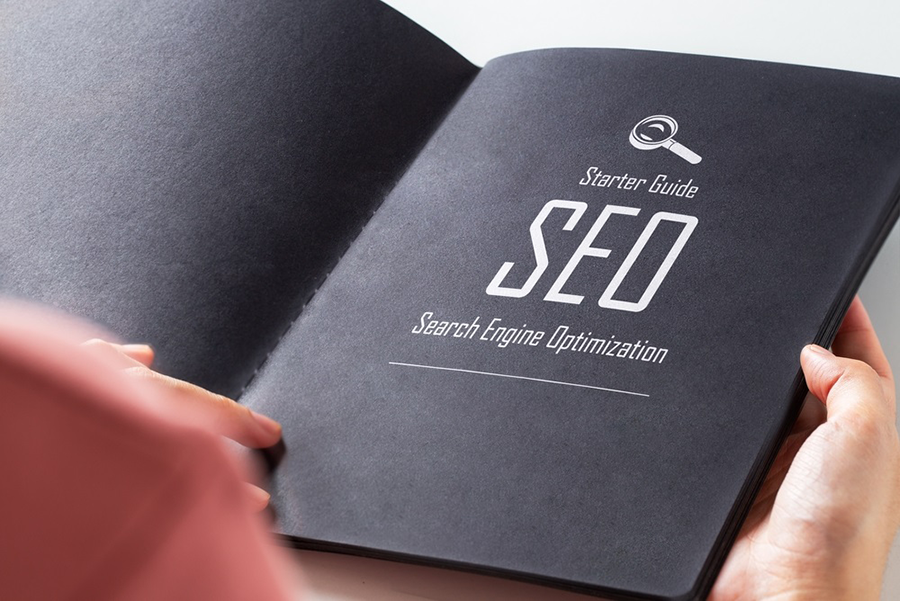Understanding keywords and search intent is one of the core factors in SEO. You might already understand what SEO actually is. Yes, SEO is all about increasing visibility, ranking, conversions, etc. But there are so many factors, metrics, and tactics, including keyword and search intent, that need extra care and attention. In this article, you will get to learn what keywords and search intent are. Let’s dive deep to know one of the very fundamental contexts of SEO.
Ranking on SERP is more dependent on user search intent than ever before. So, I’m going to narrate what search intent is and how it works. I think if you get the total point of search intent you will be able to find and research keywords conveniently.
What is Search Intent?
A big why what, which, how or any other queries are behind a search. What actually a searcher accomplishes through a search on google or any other major search engine. Do they want to know something? Or do they want to purchase or learn something about a particular thing? Or Are they looking for a particular brand or website?

These are the major concepts maintained by major search engines and try to present information on their result page. Common types of Search Intent include informational, commercial, navigational, and transactional.
For example, let’s say you search for youtube on google, rather than entering the URL into a browser’s navigation bar or using a bookmark. This is a navigational search and users search this type of keywords to find a specific website or a brand.
What is Keyword Intent?
As understanding search intent, keyword intent is also one of the most crucial parts of whether you are going to rank higher without paid or with paid. These will make you understand which keyword you should target for your business to grow.
With a keen understanding of visitors’ searches by keywords, you will be able to convert and reach to the right customers and visitors. So, Both for organic and paid ads, choosing the right intent keywords is important.
Now the question is how you could be able to choose the right intent keywords. No worries this guide will guide you exactly how you could target the right audience with the right intent keywords.
So, In the search intent definition, I was told there are 4 types of keywords. Again, these are-
- Informational
2. Commercial,
3. Navigational
4. Transactional
I will narrate these intent keyword types to make you understand how to choose the right one. Let’s do it…
Informational Intent Keyword
This category conducts millions of searches per day. But no transaction happened or these keywords contain no commercial intent. These are the keywords with huge search volume and people search simply to know a particular information.
Mostly these types of keywords start with or contain question words like- “how”, “why”, “what” etc. So, to gather information those searches are mainly known as informational keywords.

Google has some amazing features on its search engine result page like knowledge panels, carousels, or infoboxes to provide quick answers when applicable..
As I said before these keywords carry less value for transition or commercial intent. But if you think about brand awareness and making authority for your business, these keywords can make that happen.
Because people are kin to information and information or content marketing is a popular form of marketing these days. So, if you target these category keywords it will help you to make your business a brand,
So, giving the common question answer and information to the visitors, eventually making them potential customers at the end of the day.
Navigational Intent Keyword
Another important type of keyword is navigational keywords. These category keywords perform much better for a well-known brand or company. For example, Youtube is a well-known video site all over the world.
So, if someone searches on google “Youtube” that means he/she already knows the site and is just trying to get into this by a simple search.
Another example is, let’s say someone searches for Macdonald’s near me. That means he/she knows the brand and just wants to know the exact location of the outlet to get or have something.
Navigational keywords play a vital role for established businesses and entities. So, picking the right navigational keywords for business and brand is important. It works and benefits hugely in organic searches.
Commercial Intent Keyword
Commercial keywords reveal the activity of a potential customer. That means a person knows a brand or product or service. But he/she wants to know more or keep up to know.
These category keywords might not perform transactions but it has the huge potential to purchase or later purchase. For example, keywords contain discounts, free shipping, free snacks, Ipad vs iPad air, iPhone 14 pro max reviews, etc.

So, targeting commercial intent keywords in your reviews article, blog, or for any other landing page has a significant number of conversion chances.
Because these keywords actually reveal a person’s psychology of having something or purchasing something today or in the future.
Transactional Intent Keyword
The keyword with the strongest intent to buy something right now. These keywords are searched on google or any other major search engine to purchase something instantly. That means the searcher already performed his/her pre-searches with informational or any other type of keywords.
Now it’s time for him/her to take the final add cart action. Knowing or understanding these category keywords could boost online sales for any business. These types of keywords also performed way better in the PPC campaign.
So, what are these keywords examples, right?
Bike for sale
Online pizza delivery
Diamond ring with discount
Transactional keywords could be defined by buying keywords. Because these are the keywords people search to buy and convert to the buying funnel.
These types of keywords could be much for specific, like about a specific brand, product, or service name exactly. For example- Trek Bicycle unisex bicycle.
As I said, picking the right intent keyword matters a lot. So, understanding keyword intent will help to reach targeted customers. On the other hand, for SEO and SEO benefits and purpose right keyword picking is the first and foremost condition to success.
The difference Between High Intent and low-intent Keywords
From the above definition and example, you might understand all types of keywords. So, if you get the point of intent and understand the category of keywords. It will be very easy to pick the right keywords for the business you want to target.
The main difference between low-intent and high-intent keywords is, they are likely to buy a product or service less or more.
So, high-intent keywords are those keywords people search on google bing, or yahoo to get or buy a product right away. They signify a high intent to the transaction or more like to convent later.
In contrast, low-intent keywords are the keywords with less commercial or buying intention. These are the keywords people search on the search engine to find information, to learn something or anything like that they could buy or convert in the future.
How to Find and Research Exact Intent Keywords
Finding keywords with exact intent is not too hard. If you understand your products, service, and overall brand or business. There are plenty of tools and strategic formulas for each tool out there. For your convenience and easy understanding, you can check how to do keyword research with tools this guide will help you much.

There are numerous ways to find high-intent and low-intent keywords for any type of business. You will find both free and paid both type keyword research tools. Some of my all-time favorite keyword research tools are-
-Google keyword planner
-Goolge search console
-Google trend
-SEMRUSH
-Jaxxy
-Ahrefs keywords explorer
-Keyword tool io
These are the keyword research tools I use most frequently. The list is both free and paid.
Final Thought
Understanding keyword intent and search intent is one of the core factors for every SEO and digital marketer. Without proper knowledge of keywords and it’s intent you might not be able to fulfill the searcher quest as well as the search engine. Hope this guide will help you to evaluate your targeted keyword for your upcoming post.



